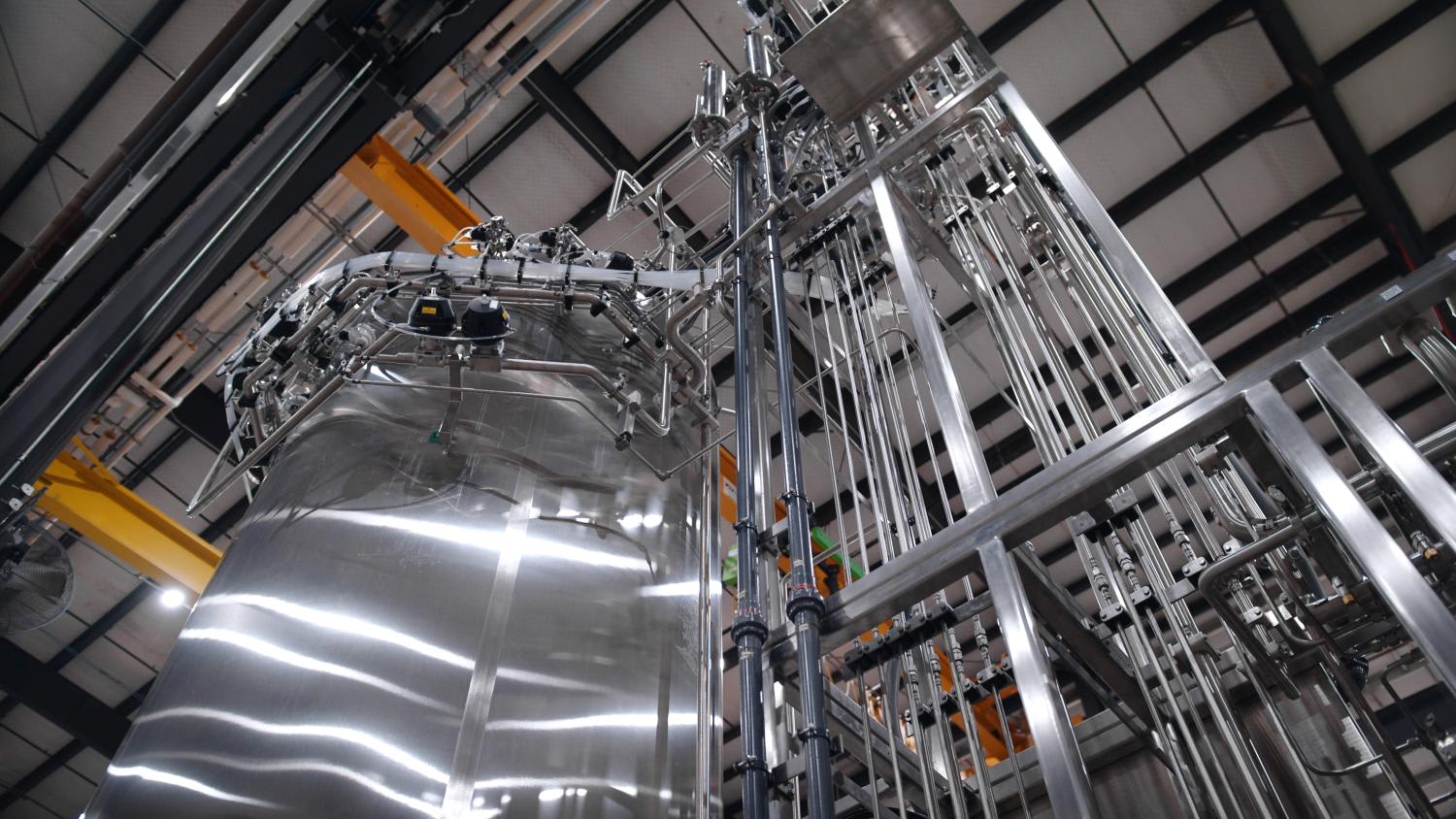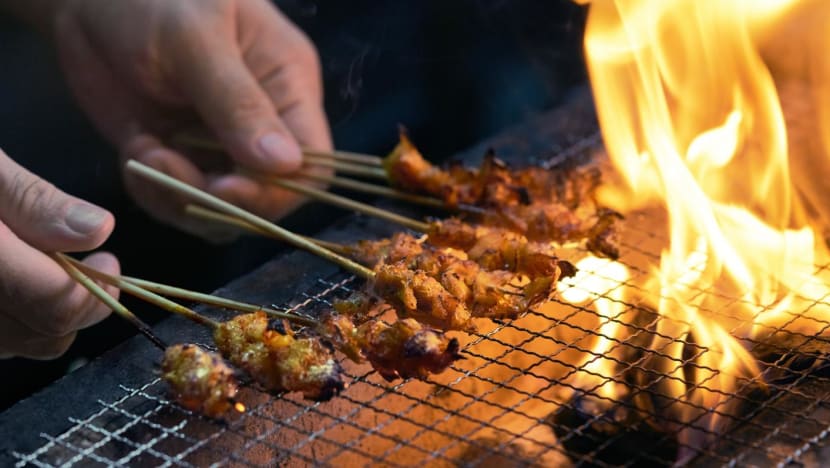Largest cultivated chicken meat facility in Asia breaks ground in Singapore
SINGAPORE: Lab-grown chicken could soon be on the menus of more eateries in Singapore, and perhaps on the shelves of supermarkets.
On Friday (Jun 10), GOOD Meat broke ground on premises in Bedok that will be the largest cultivated meat production facility in Asia.
The 30,000 sq ft complex at Bedok Food City, scheduled to open in the first quarter of 2023, is set to produce "tens of thousands of pounds" of meat a year, said the US-based company.
GOOD Meat did not give a more specific estimate on the capacity of the facility, but said that it will produce less than 2,000 pounds (about 900kg) of its cultivated meat this year.
"So it will be a significant step-up," said CEO Josh Tetrick.

The meat will be grown from chicken cells in a 6,000L bioreactor - the single-largest vessel in the cultivated meat industry to date. About 50 researchers, scientists and engineers will work at the facility, said the firm.
While the company's cultivated chicken was approved by Singapore for sale in 2020 and has been available in limited quantities, this is the first step towards commercial production.
It is now seeking regulatory approval to sell its meat in the United States and in Qatar, said Mr Tetrick. It is also looking to launch its cultivated meat product in China.
“We view Singapore as vital in our plans to build this new approach to making meat. We’ll launch new products here, distribute to other countries in Asia from here and learn from consumers here who have proven themselves to be at the cutting edge of what’s next,” said Mr Tetrick.

Minister for Sustainability and the Environment Grace Fu said at the groundbreaking ceremony that countries around the world face food shortages due to supply disruptions and climate change.
She noted that Singapore poultry importers are now sourcing for alternative fresh chicken supplies from other countries amid a disruption of the supply from Malaysia.
"This is why we implement a multi-pronged strategy to shore up our food security and an important prong is the deliberate diversification of our food sources," she said.

On Friday, guests were each served one stick of cultivated chicken satay with pineapple salsa and a cultivated chicken bite, or nugget, with Hainanese curry rice.
Each dish was concocted by Singapore hawkers: The satay by Mr Paul Liew of Keng Eng Kee Seafood, and the Hainanese curry rice by Mr Loo Kia Chee of Loo's Hainanese Curry Rice. They were also served in pop-ups at Keng Eng Kee and Loo's Hainanese Curry Rice earlier this year.
When this reporter tried them, the meat tasted very much like the chicken we are used to, but the texture was just slightly different.
The chicken bite was first launched by GOOD Meat in 2020, and two dishes made with the chicken nugget were sold at private members’ club 1880 at S$23. Eat Just previously said it costs about US$50 to produce one chicken nugget.
Mr Tetrick told journalists that it is currently providing the meat to restaurant and hawker collaborators below cost.
When asked about the future cost of the meat and how much more economical it could be with mass production, Mr Tetrick said that their goal is to be at a comparable cost with conventional chicken.
"To do that, we need to make it in much larger vessels. We need to get the cost of the nutrients and the cells way down, we need to get the density of the cells way up," he said.
"So today, even when we're making tens of thousands of pounds here, which will be a significant ... cost reduction, it's still far off from where we need to go."
The objective is to scale up and lower the cost of cultivated meat to the cost of conventional chicken before the end of 2030, and they will look at a larger facility later, said Mr Tetrick.
GOOD Meat is also planning to submit an application for cultivated beef to the Singapore Food Agency by the end of this year.
"We have the chicken bite and now the shredded chicken, and we'd like to move forward with a chicken breast product," said Mr Tetrick on the company's next steps.
He said that GOOD Meat will work with more hawkers and restaurants in Singapore to make cultivated chicken dishes, and it is speaking with supermarkets about retail sales.
The company is also considering additional research and development activities and the export of GOOD Meat products across Asia, subject to regulatory approval.
Mr Liew, the third-generation owner of Keng Eng Kee Seafood, said that the restaurant will be launching limited quantities of cultivated chicken dishes for online orders.
Mr Liew said that he may not have thought of using cultivated chicken before the COVID-19 pandemic, but Singapore's food supply woes in the last two years changed his mind.
"Do we want our next generation to face this kind of food insecurity, this kind of (food) prices?" he said. "We should provide a choice."
GOOD Meat is a brand under San Francisco company Eat Just, one of many alternative protein firms to start up in recent years.
Its cultivated chicken was the first to be approved by Singapore authorities in 2020.
The meat is made from the cells of animals obtained using biopsy and then grown in bioreactors in a growth medium of cell nutrients, including amino acids, carbohydrates, minerals, fats and vitamins, the company said.
Animal rights activists have pointed out that the growth medium contains fetal bovine serum (FBS) which is harvested from calf foetuses.
Mr Tetrick said that the current formulation contains about 2 per cent FBS and it is seeking approval in Singapore for a serum-free growth medium developed in its San Francisco lab.
He added that the nutritional value of cultivated meat is similar to conventional chicken meat.















